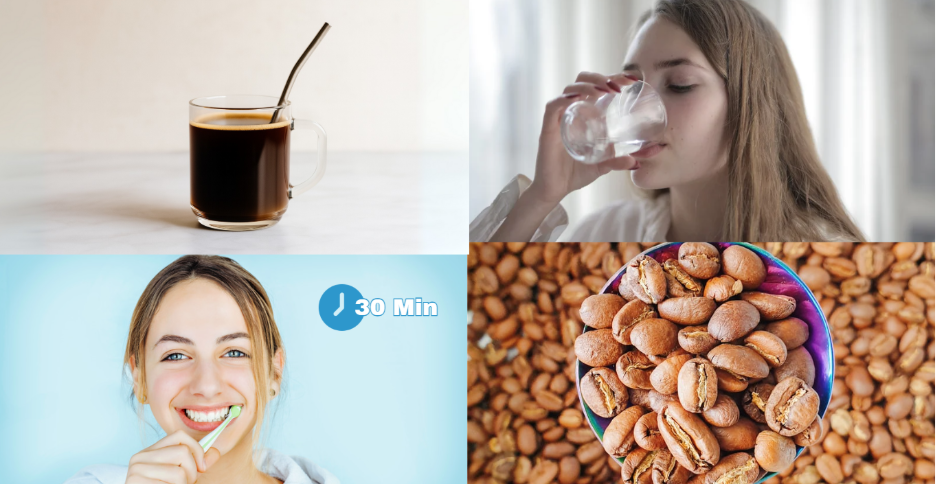

For many of us, coffee is more than just a beverage, it’s a daily ritual. But if you’ve ever looked in the mirror and wondered, “Does coffee stain your teeth?” You’re not imagining it. From gradual yellowing to stubborn brown stains, coffee can definitely impact your smile over time.
In this article, we’ll answer key questions like what stains teeth more: coffee or tea, can coffee make your teeth yellow, and will coffee ruin your teeth in the long run. You’ll also learn practical prevention tips and how professional whitening can safely restore your smile’s natural brightness.
Yes, coffee stains on teeth are real and common. Coffee contains tannins, natural compounds that allow color to stick to enamel. Over time, these tannins settle into the tiny pores of your teeth, creating a yellow or brown tint that brushing alone can’t remove.
Even a single cup a day can lead to staining, especially if you sip it slowly over time.
Absolutely. The combination of dark pigments, acidity, and frequent exposure is what makes coffee one of the top culprits for tooth discoloration. The acid in coffee can temporarily soften your enamel, making it even easier for stains to form.
Surprisingly, tea may stain teeth more than coffee, particularly black tea. That’s because tea contains even higher levels of tannins. However, the degree of staining also depends on:
That said, coffee and teeth are still a challenging duo when it comes to maintaining a bright smile especially if you skip preventive care.
Coffee doesn’t “ruin” teeth in the traditional sense, but it can accelerate surface staining and weaken enamel if consumed excessively or paired with poor oral hygiene. Common issues include:
Over time, these issues can contribute to decay, sensitivity, or a dull appearance especially if you already have existing enamel wear or gum recession.
Love your morning cup? You don’t have to give it up. Just follow these dentist-approved habits:
Brushing immediately after coffee can do more harm than good. Acidic drinks soften enamel, and brushing too soon can wear it down. Wait at least 20–30 minutes before brushing.
Darker roasts may stain more, but all coffee can leave residue. Opting for a lighter roast or adding milk can reduce pigmentation, though it won’t eliminate the risk.

These help with surface-level stains, but results can be gradual and limited.
Store-bought kits use peroxide-based gels or strips but can be uneven, cause sensitivity, and may not fully address deeper stains.
This is your safest, most effective solution. At Tribeca North Dentistry, we use advanced techniques and professional-grade whitening agents to:
For a deeper dive into the benefits, read our blog: Top 5 Reasons to Choose Professional Teeth Whitening: Achieve a Brighter Smile with Expert Care
So, will coffee stain your teeth? It likely already has but that doesn’t mean your smile is doomed. With a little awareness and consistent care, you can enjoy your daily cup without compromising your oral health or confidence.
Understanding how coffee and teeth interact empowers you to take small steps every day to protect your enamel, prevent buildup, and maintain a smile that looks just as energized as you feel.
Whether you're seeing yellow tones from years of morning lattes or just want to start fresh with a whiter smile, we’re here to help. At Tribeca North Dentistry, our team offers safe, personalized whitening and long-term solutions tailored to your lifestyle, including guidance for coffee drinkers.
Schedule your appointment today, and take the first step toward a brighter, healthier smile, coffee included.